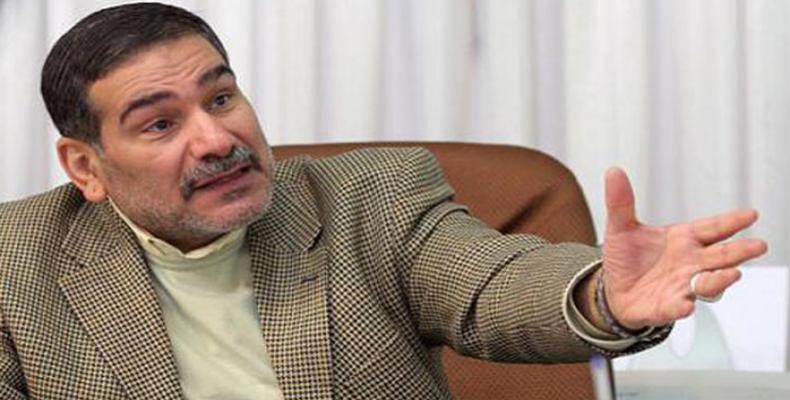Tehran, July 5 (RHC)-- Iran's top security official says European countries need to stand against Washington's unilateralism in a bid to defend their own "identity and security."
The remarks were made by Ali Shamkhani, the secretary of Iran's Supreme National Security Council, in an op-ed for Tasnim news agency on Wednesday, four days ahead of Tehran's deadline for the remaining signatories of the Iran nuclear deal to fulfill their commitments under the agreement.
Since the U.S. withdrawal from the 2015 nuclear deal, known as the Joint Comprehensive Plan of Action (JCPOA), Iran has paid a heavy price to counter Washington's unilateralism and to defend its own independence, Shamkhani noted.
However, he said, Europe has practically remained an unimportant and passive actor despite being humiliated by the US and being faced with the destructive impacts of Washington’s unilateralism on various international treaties. "Europe has failed to play its role as a united pole with an influence on international relations," Shamkhani added.
"Standing against the U.S. unilateralism... poses a difficult and serious dilemma for Europe’s determination to defend its identity and fragile security in the face of a wave of American unilateralism," he said.
The Iranian official said if the incumbent U.S. president removes Europe from global equations, there will be no reason for the next U.S. presidents, either Republican or Democrat, to not use the results of such unilateralism for maximizing Washington's interests in the face of a weakened Europe.
If such a trend is not stopped, he warned, new extremist groups will most probably rise to power to compensate for the current humiliating conditions and recover Europe's lost identity and independence. The fate of the Iran nuclear deal has been in doubt since last May, when the US pulled out and reinstated the anti-Iran sanctions that it had lifted under the agreement.
Bowing to Washington’s pressure, Europe has been throwing only verbal support behind the agreement ever since, refusing to guarantee the Islamic Republic’s business interests in the face of American bans despite being contractually obliged to do so.
Back in January, Britain, France, and Germany introduced a special financial channel called the Instrument in Support of Trade Exchanges (INSTEX), which is aimed at facilitating trade with Tehran in the face of the US bans.
Iran's Foreign Minister Mohammad Javad Zarif said on Wednesday the INSTEX is just a prelude to the implementation of 11 commitments the Europeans have undertaken under the JCPOA.
The JCPOA obliges the European partners to prove their commitment to the nuclear deal in action, Zarif said, adding that the Islamic Republic would commit to the agreement in exactly the same way as those countries would. The Iranian foreign minister said: “If Europe commits to the JCPOA, we will do so, too."


